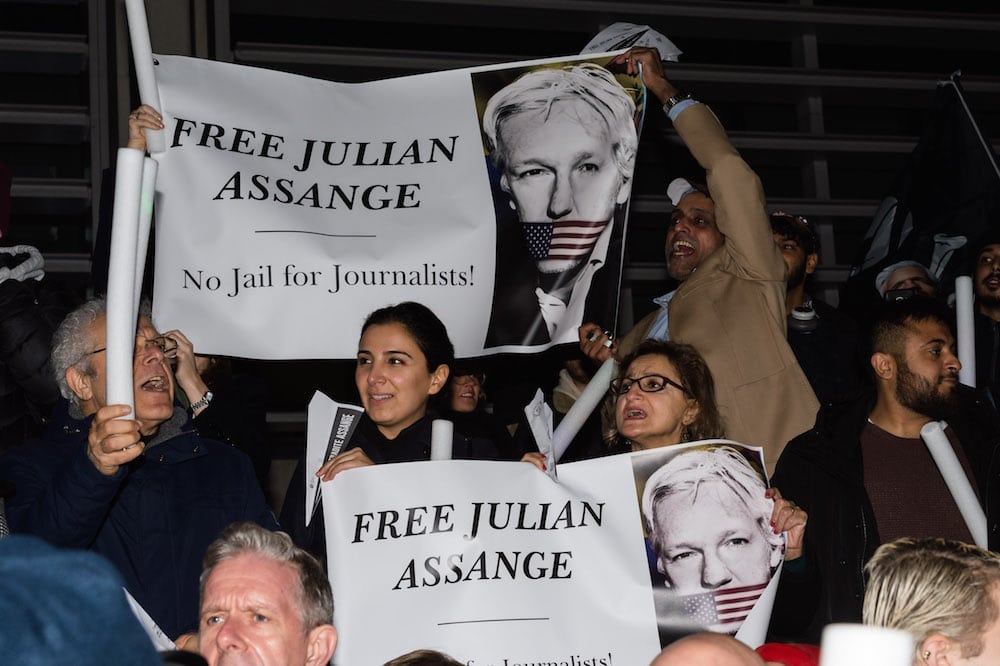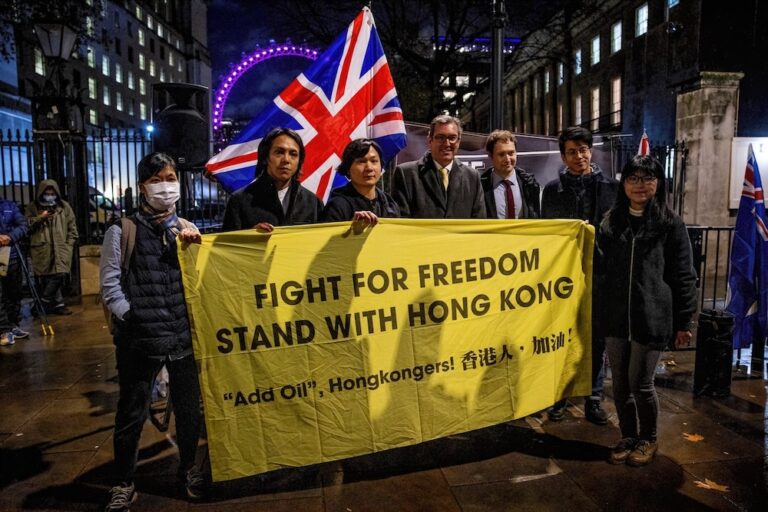At a meeting at the European Parliament in Brussels, IFEX member the IFJ pledged its support to the campaign to prevent the extradition of Julian Assange, saying his arrest constituted an attack on freedom of the press.
This statement was originally published on ifj.org on 14 November 2019.
The event, organised by the GUE/NGL Group in the European Parliament, heard testimonies and expert statements on the case which speakers, including IFJ General Secretary Anthony Bellanger, said could have serious implications for the rights of journalists.
Several speakers, including Clare Daly, MEP from Ireland who was behind the event, David Greene, Director of Civil Liberties at the Electronic Frontier Foundation, and Nils Melzer, Special Rapporteur on Torture at the United Nations, denounced the injustice of Assange’s threatened extradition to the United States. Julian Assange’s father, John Shipton, was also present.
David Greene condemned the law that the United States accuses Julian Assange of obstructing. This anti-spyware law in the United States is “a century old law that has never targeted journalists“, he said, because a tacit consensus between judges and journalists allowed it not to apply to journalists in the name of the public interest. Thus, accusing a journalist of violating this law marks a real change in terms of protecting journalists in the United States.
Nils Melzer testified regarding the torture suffered by Julian Assange. He said that he had visited him in May 2019 with two doctors and then saw at Julian Assange’s home “all the symptoms of prolonged exposure to psychological torture, to inhuman treatment“.
In his speech, Anthony Bellanger recalled that the IFJ considers the arrest of Julian Assange, a member of the IFJ’s Australian affiliate, the Media, Entertainment and Arts Alliance (MEAA), to be an attack on press freedom and international law. He also said that the IFJ would ask the Council of Europe Commissioner for Human Rights, Dunja Mijatovic, whether Julian Assange’s arrest and possible extradition to the United States met the criteria of the European Convention on Human Rights. Julian Assange should benefit from the protection of Article 10 of the same convention, which stipulates that everyone has the right to freedom of expression. His arrest therefore constitutes an attack on freedom of the press, international law and the right of asylum, because he only revealed the truth. The dissemination of documents or information of public interest cannot be considered a crime.
Anthony Bellanger, IFJ General Secretary, declared: “Julian Assange has therefore not committed any crime. His only crime was to denounce the misdeeds and atrocities of others! Atrocities committed in Iraq and Afghanistan. The IFJ continues its international struggle and is at the disposal of all of you, European parliamentarians, United Nations special rapporteurs, human rights and freedom of expression activists, to continue this essential fight for democracy.”



